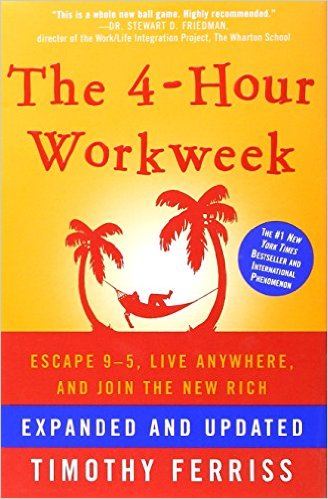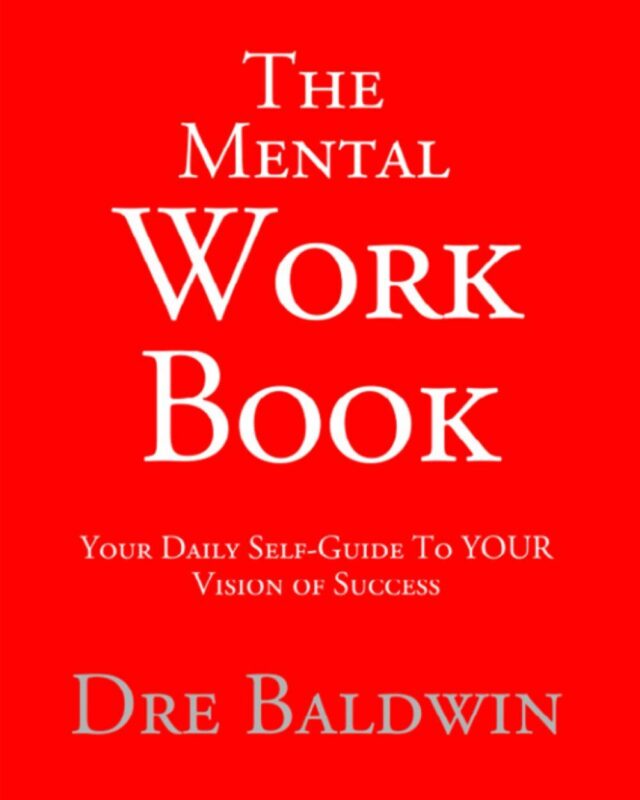
Dre Baldwin is the Founder and CEO of Work on Your Game, Inc. After a nine-year professional basketball career, Dre has delivered four TEDx talks and authored 33 books. Hear Dre discuss beating all odds, and landing a pro basketball contract, and what he learned about taking on gigantic goals, building a side hustle, and how that turned into a speaking and writing career. Dre’s unique perspective on structure, discipline, positivity, standards, and the future of work is relevant whether you’re just starting out, or at the peak of your career.
Key Takeaways
[2:29] Dre ran his latest 10K on the Saturday before this interview, coming in third in his age group at a little over 44 minutes for a 7:10 pace. He’s happy when he comes in in the top three of his age group. Last year he ran at a pace of just under 7:00, but this year he has a newborn and he hasn’t been getting as much sleep. He will run a Turkey Trot on Thanksgiving!
[3:45] The Work on Your Game philosophy comes from Dre’s sports background. He graduated from college in 2004. He started playing basketball overseas in the same year. He also started doing videos on YouTube showing players how to practice basketball. After a few years, players noticed Dre was very consistent, putting out videos every day.
[4:52] People started asking Dre about his background. He told them he had played one year of high school basketball, Division III college ball, and hustled his way into pro ball. So they asked him about mindset. “How do you keep practicing every day? How did you get the confidence to show up and deliver? Why do you keep going despite all the setbacks?”
[5:20] Dre started making short selfie videos, The Weekly Motivation, every Monday, for about 400 Mondays in a row! Those videos became the foundation for the work Dre does now, talking about discipline, confidence, mental toughness, and personal initiative. People outside of basketball also started relating to his messages.
[6:25] The wide appeal of his videos inspired Dre to apply his motivational ideas beyond sports. When Dre stopped playing, in 2015, he had momentum. He was already writing books and figured out the framework of what he was going to be talking about. His transition from sports to business was not as challenging as it is for athletes who start at zero with no momentum.
[6:49] Dre already had momentum and an audience. He knew what he was doing and where he was going to go. That’s where Work on Your Game came from.
[7:24] Between 2009 and 2011 was an important period for Dre. He found himself unemployed in basketball, so he needed to know how to make some money without a contract. Social media, content, and personal branding started coming out, and he was already doing it on YouTube. He had a head start in content when everybody else jumped in. He had read Robert Kiyosaki’s Rich Dad Poor Dad in college.
[8:03] Rich Dad Poor Dad had planted the idea of being an entrepreneur in Dre’s mind. In 2008, Dre read Tim Ferris’ The Four-Hour Work Week, for the digital world. Dre took the concept and started creating his products. When Dre made his first sale, a five-dollar basketball training program, he knew he could do that for the rest of his life after his basketball career was over. He kept playing until 2015.
[8:38] Jan asks if the Adam Sandler basketball movie, Hustle, is realistic. Dre hasn’t seen it. Adam Sandler plays characters that don’t give up.
[11:28] When Dre addresses an audience, he includes stories of his failures, to show people that he’s been in their shoes. Dre shares an example from his basketball career. Dre built his audience from players who barely played in high school. In high school, Dre only made the team in his senior year, and he sat on the bench. He averaged two points per game. In basketball, that’s “nothing.”
[13:22] Nobody expected Dre to play basketball after high school. In a Division III college, he walked onto the team. He didn’t “set the world on fire” and didn’t even play in his senior year. In 2004, after college, Dre told his parents he was going to be a professional basketball player. It didn’t make sense. Out of college, Dre worked at a Foot Locker and sold memberships at a Bally Total Fitness gym.
[15:30] Dre felt like a loser with nothing going on. He decided to go to a sports exposure camp. He saved up and paid for the possibility to be seen over two days and maybe play his way into a job. Dre and some friends from Philadelphia drove 15 hours to Orlando, got out of the car at 9:00 a.m., and started playing. That was when he started to turn his life around. He signed a pro contract in 2005.
[17:26] Dre tells people that consistency is about structure. You can structure things in such a way as to make consistency easy. It goes along with discipline. Every consistency or discipline challenge is really a structural challenge. Structure things to make discipline easier. First, get clear on what you want to achieve and then structure things to make it as easy as possible to follow the process every time.
[18:10] Jan and Jim haven’t missed a show of The Leadership Podcast in six years because they have structured a process where it’s simple for each of them to get on the microphone and record. They have a process for finding guests, a process for making sure the guest is ready, a process for the interview questions, a process for knowing who will talk next; they have a process for everything about the show.
[18:41] Dre explains the importance of structure to consistency and discipline.
[19:53] You have to want the goal to put structure in place to reach it. The challenge with motivation is that it is not reliable. You don’t feel motivated every day. So you need a discipline anchor. Pick something that you care so much about that you are willing to execute discipline to achieve it and go through all the hard stuff necessary to get to the thing you care about.
[22:17] Dre discusses how the lessons of sports translate into business. Both have a performance culture. There’s a team dynamic. Individual goals are subservient to the goals of the team. You work with other people. You need leadership and you can tell good leadership from bad. Everything is based on results. When you perform, you produce results and you get rewards.
[26:01] Dre believes that eventually, everybody will be treated as an entrepreneur and be paid or not paid, based on what they produce. You won’t get paid just for being there. If you produce a lot, you’ll get more; if you produce less, you get less. If you produce nothing, you get nothing.
[26:35] When Lee Iacocca started at Chrysler, over several days, he met with all the executives. If an executive couldn’t demonstrate to him on a whiteboard how they make money for the company, he fired them. It’s the same in any sport. When you stop demonstrating your value, you are finished.
[27:36] Jim mentions that we are seeing more of a free-agent economy. This applies even to the NCAA college transfer portal. Teams are suddenly competitive that weren’t competitive before. Sports are presaging what we’re seeing in business.
[28:50] Dre thinks changing to free agency in business will be messy. People who are used to making a certain amount of money, no matter what they do, will complain. But the workforce is partly behind this movement. People are leaving work and selling products, services, and even influence online. People want more control over their work. As younger people move into the workforce, things may change.
[30:28] Dre Baldwin introduces his book, The Mental Workbook, and seeding your subconscious mind. Dre tells people that mindset is the foundation of all success and the foundation of all failure. How you think leads to your actions and your actions lead to your results. Be, do, and have. Seeding the subconscious mind is mental conditioning. In Work on Your Game, Dre talks about cardio for your mind.
[31:16] The purpose of cardio is not to prevent fatigue but to enable you to recover more quickly from fatigue.
[31:50] Dre says people don’t understand that 85% of our thoughts are habitual and subconscious. Most of what goes on in our minds, we are not conscious of thinking about it. If there’s any area of our lives that we want to be different, what we need to change is what we are subconsciously thinking. There are two options (one or both) to change our subconscious: repetition, and emotionalizing our thoughts.
[32:25] Dre tells how to use The Mental Workbook to change your mindset. Write down things you have achieved, what you are grateful for, and what you want to achieve. Have a written mantra of what you want to be and read it out loud to yourself at the start and end of every day, so it’s the first thing you put into your mind in the morning and the last thing you think of before you sleep.
[33:35] Dre tells his audiences to be intentional and conscious about the things they do.
[33:46] To emotionalize your thoughts, put yourself in the frame of mind where you feel how you’re going to feel once you achieve your goal. How are you going to feel when you close that contract, make the basketball team, or your kid graduates from high school when that thing finally occurs? Put yourself in the energy state you will be in when you achieve your goal even before you achieve it. It’s a challenge.
[34:56] If you can get your subconscious thinking like that, it will lead your conscious mind to do things that you are constantly thinking about, which will lead you in the direction of your goal. But don’t celebrate your success before you have it!
[35:49] Derek Sivers, in a TED talk, advised not to tell people your goals. Verbalizing them to others gives you a small sense of satisfaction but you don’t want social validation, you want to impress it on your subconscious and then go to work to make it happen. The only people who need to know about your goals are you and the people who are actively involved in helping you reach them.
[37:49] Dre talks to his audiences all the time about standards. “Standards Still Matter” is an episode on Dre’s platform. When you lessen the value of standards, you bring in the Second Law of Thermodynamics or entropy. Every entity is moving into a higher state of chaos. When you remove standards, you get chaos. Standards, parameters, and rules keep us out of chaos.
[38:59] A standard with no penalty for not meeting it is only a suggestion. A rule must be enforced. Dre says that fear of conflict and lack of an enforcement structure are two reasons standards are not enforced. Society is also becoming laxer, which will lead to chaos.
[43:11] Dre throws the listeners a 48-hour challenge. (You will probably fail at first but you can try it over and over again.): Go 48 hours straight without any negative thoughts. If you catch yourself having one, you start back at 00:00. You will quickly realize how much negativity your subconscious mind has inside it. It might take a month to achieve the challenge. You will have a major breakthrough if you succeed.
[45:52] Closing quote: Remember, “Some people want it to happen, some wish it would happen, others make it happen.” — Michael Jordan
The Leadership Podcast is sponsored by W.S. Darley & Company.
Founded in 1908, Darley remains a family owned and operated business, providing the highest quality equipment solutions to our country’s warfighters and firefighters.
Learn more at darley.com and darleydefense.com
Quotable Quotes
“I just ran my last 10K this past Saturday; came in third in my age group. I always aim to come in the top three in my age group. If I do that, then I’m happy.” Click To Tweet “I already had momentum. I already had an audience. I already knew what I was doing. I already knew where I was going to go. So, all that stuff, I already had in place.” Click To Tweet “I kept playing until 2015. But from 2010 to 2015, I was doing both at the same time. The good thing about being a pro athlete is you get a lot of downtime. So when you see basketball players making rap albums, that’s why. … I just… Click To Tweet “When you’re talking to an audience, you can’t just tell them about your successes because nobody can relate to that. … You have to show people you’ve been in their shoes. … You’ve got to be able to tell people about the mess,… Click To Tweet “I tell people, for every one of LeBron James, you’ve got a thousand Dre Baldwins.” Click To Tweet “There’s a framework of consistency that applies to anything, whether it’s a podcast, running a business, starting up a company, being in great physical shape, taking care of your finances; all of it is based on structure that makes… Click To Tweet “For many people who have issues with consistency and discipline, … they’re thinking that they have to force themselves to execute. They’re getting the right answer to the wrong question. So when you answer the right question, then… Click To Tweet “Life is a performance- and results-based business, no matter what you’re doing. … You have to perform to produce results and when you produce results, you get rewards.” Click To Tweet “Mindset is the foundation of all success and the foundation of all failure.” Click To Tweet “The purpose of cardio is not the elimination of fatigue. It’s how quickly you get over it when you do feel fatigue. Someone who’s in great shape might only need 30 seconds to recover after they had to run up three flights of… Click To Tweet “The only people who need to know about your goals are you and the people who are actively involved in helping you reach them.” Click To Tweet
These are the books mentioned in our conversation with Dre.







Recent Comments